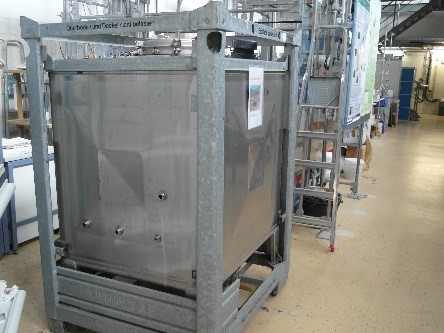Case study 3 - Ongoing research on organic acid production in Leipzig…
In case study 3, the best producing conditions of organic acid accumulation yeasts in industrial wastewater treatment systems have been optimized at demonstration scale for the most promising target product.
Biomass produced in the yeast-based process will be used in an Anaerobic Co-Digestions process to produce biogas. The remaining digestate will be used in a hydrothermal carbonization (HTC) process to generate carbon black.
The demonstration plant is at UFZ in Leipzig, and is at the technical hall operated by the department of Environmental and Biotechnology Center (UBZ). The technical hall is specifically managed to accommodate wastewater-based experiments.
Non-conventional yeasts (e.g. Candida or Pseudozyma) are able to produce organic acids in high concentrations, yields and productivities under N, P or S limiting cultivation conditions (Aurich et al. 2012, Sauer et al. 2008, Stottmeister et al. 2005). The ability of these yeasts to assimilate many substrates classes (carbohydrates, hydrocarbons, polyols, fats and proteins) in mixtures of impure sources, as well as their robustness and high osmotic tolerance, demonstrate their particular suitability for the production of valuable marketable bio-products.
For instance, the biotechnological production of citric acid accounts for 1.7 million tons/year, which has a wide range of applications including, additive to food and animal feed and in cleaning agents production (Moeller et al., 2007, 2011). Other commercial organic acids produced by yeast bioprocesses are fine chemicals alpha-ketoglutarate, isocitrate, itaconate and succinate (Specht et al. 2008, Aurich et al. 2012, Jost et al. 2015).

Case study 3 facilities in Leipzig

















